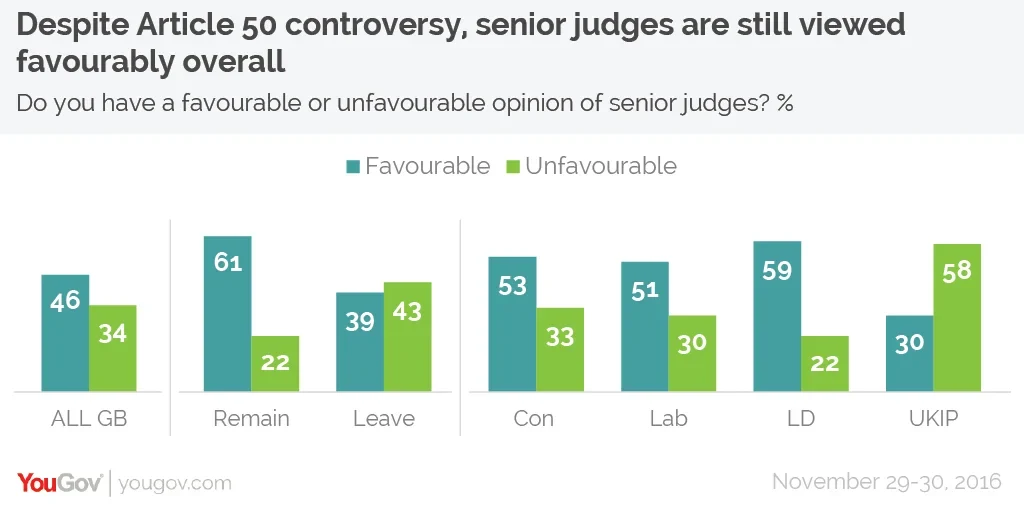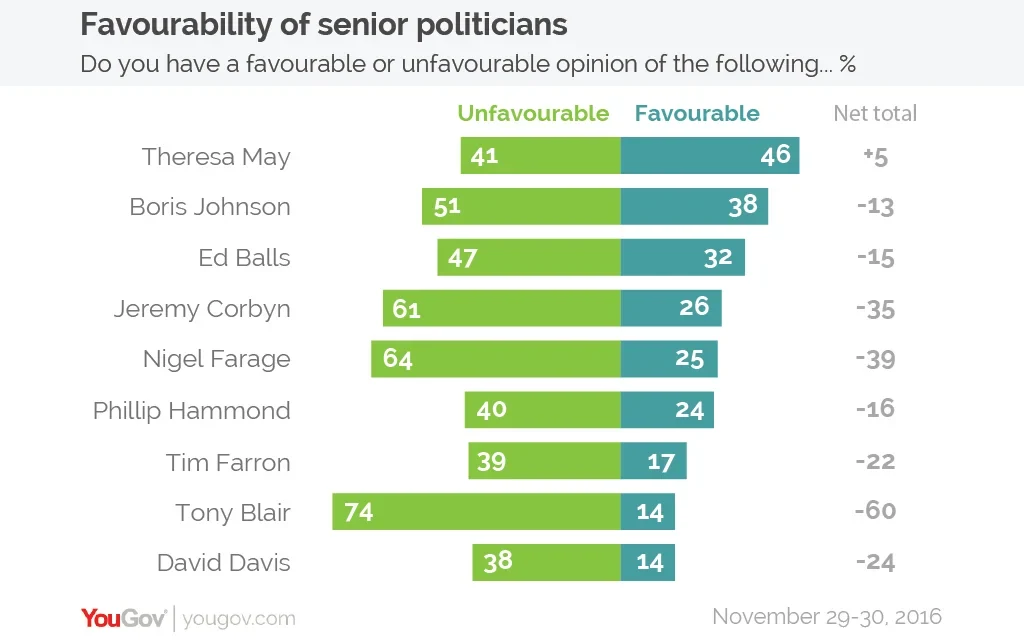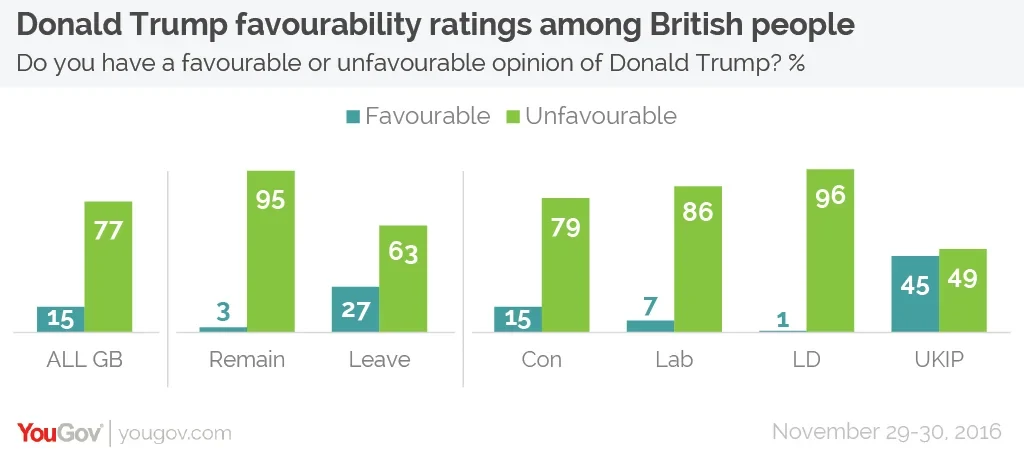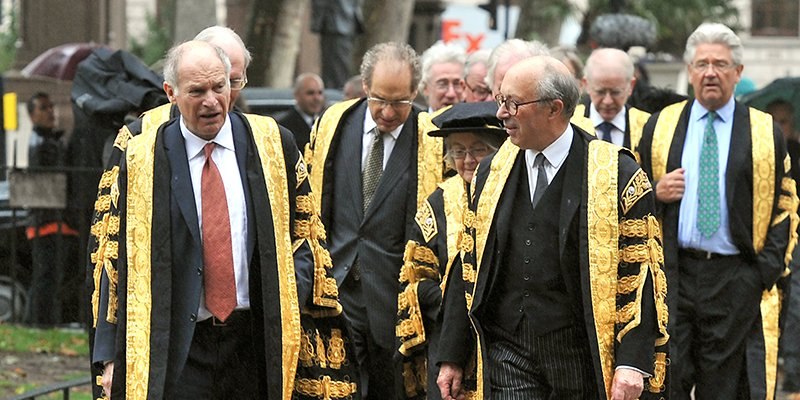Latest YouGov favourability ratings find 46% of people have a favourable opinion of senior judges
Who has the right to invoke Article 50, Brexit’s most vexing current issue, is currently being debated at the Supreme Court, the highest court in Britain. The twelve Justices of the Supreme Court will decide whether the government will be able to bring Britain out of the European Union without a vote in Parliament.
The case’s journey to the Supreme Court has been controversial, with High Court judges who ruled that Article 50 would require a Parliamentary vote in dubbed “enemies of the people” by the Daily Mail.
Nonetheless, new YouGov data finds that nearly half of the public have a favourable view of senior judges. As many as 46% of people say they feel favourably towards senior judges, compared to 34% of people who have an unfavourable view of senior judges, giving a net rating of +12.

That being said, there is a Brexit dimension to opinion on senior judges – Remain voters overall have a favourable view of judges with a net favourability rating of +39, whilst Leave voters are far more negative, returning an overall rating -4.
In terms of 2015 vote, those who voted for UKIP are the most likely to have an unfavourable view of senior judges. As many as 58% have an unfavourable view, compared to 30% with a favourable view, for a net rating of -28. These are almost the reverse of the views of Conservative, Labour and Liberal Democrat voters.
Despite the Article 50 controversy, senior judges are still more popular among the public than any British politician listed in the survey. With a net favourability rating of +5, Theresa May is the only politician more people like than dislike (46% have a favourable view of her, whilst 41% have an unfavourable view).

Almost all of the British politicians listed – Theresa May, Phillip Hammond, Boris Johnson, David Davis, Jeremy Corbyn and Tim Farron – have seen a decrease in their net approval ratings of 6 to 10 points since our previous survey in August. Only one politician has seen their net favourability rating stay the same – Philip Hammond, whose 8% improvement in terms of favourable views is offset by an 8% increase in unfavourable views.
Three new British politicians were added to the roster this month: Nigel Farage, Tony Blair and former shadow chancellor/Strictly Come Dancing contestant Ed Balls. Of the three, Balls is the most popular – if a -15 net favourability rating can be described as popular. A quarter of people have a favourable opinion of Farage, compared to 64% with an unfavourable opinion of the UKIP leader, for a -39 net favourability rating.
Tony Blair fares worse still, with just 14% of people saying they have a favourable view of the former PM, whilst 74% of people say they have an unfavourable view of him. With a net rating of -60, Blair is about as popular in Britain as Donald Trump (-62).
Despite his very low overall rating, the number of people who hold a favourable opinion of Donald Trump has nearly doubled since August, albeit from an abysmal 8% to an unimpressive 15%. The President Elect’s favourability has improved most notably among those who voted to Leave the European Union – especially UKIP voters, among whom 45% now have a favourable opinion of the President Elect (up from 31% in August).

Photo: PA













